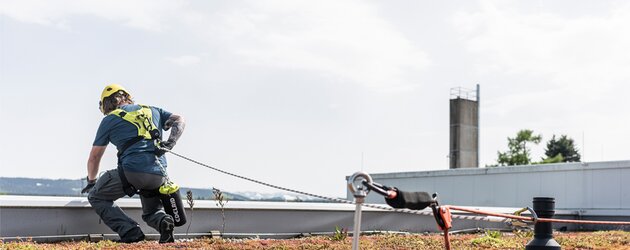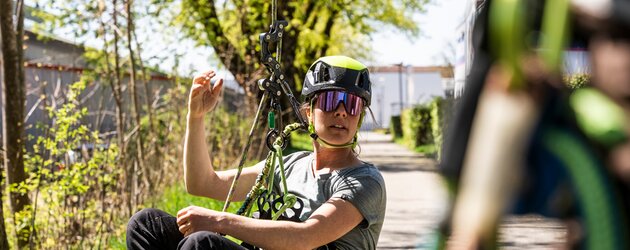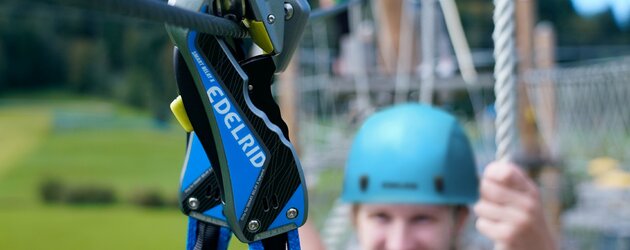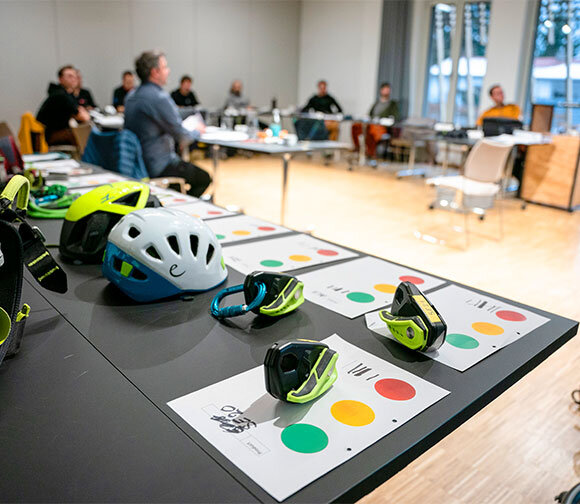Personal Protective Equipment (PPE) is designed to protect a person from one or more risks to their health or safety and is carried or held by the individual. PPE is used in situations where there are hazards to a person's health or life. Hazards can include exposure to toxic fumes/smoke affecting the respiratory system, loud noise impacting hearing, falling objects, or falls from height. Examples of PPE include respiratory protection devices, hearing protection, cut-resistant trousers, safety shoes, helmets, and climbing harnesses. Fixed safety devices such as safety nets or anchorage points are not considered PPE since they are not carried by an individual. The items classified as PPE in the European Union are regulated by EU Regulation 2016/425.
Fall protection equipment is a subcategory of PPE that protects individuals from falling while working at heights.
In commercial and institutional contexts, fall protection equipment is used in areas such as scaffolding, roofing, assembly work, as well as by police special units, fire departments, and rescue teams who are exposed to dangerous heights and depths in their professional activities.
Fall protection equipment is also used in sports and recreational settings, for example in climbing gyms, high ropes courses, and mountainous regions.
If PPE fails, there is a high risk to life and limb. Accordingly, the requirements for the design and manufacture of PPE are very strict. These requirements are determined at the legislative level by EU Regulation 2016/425 and the 8th Ordinance on the Product Safety Act (8th ProdSG). To protect the wearer, it is important not only to meet the requirements for new PPE but also to ensure regular inspection and maintenance.
Training for Competent Persons for the Inspection and Assessment of Protective Equipment Against Falls from a Height
The training is conducted in accordance with the DGUV principle 312-906 published in 2017. A competent person, as defined by this principle, is an individual qualified according to DGUV 312-906 who possesses sufficient knowledge in the field of protective equipment against falls from a height and its intended use due to their professional training and experience. They are familiar with the general rules and regulations for personal protective equipment, are informed about the current state of recognized technical standards and relevant norms, and are knowledgeable about the proper application of the equipment. Furthermore, individuals qualified under this DGUV principle also meet the requirements for competent persons at the European level according to EN 365:2004 and can demonstrate their qualifications as a competent person internationally.







